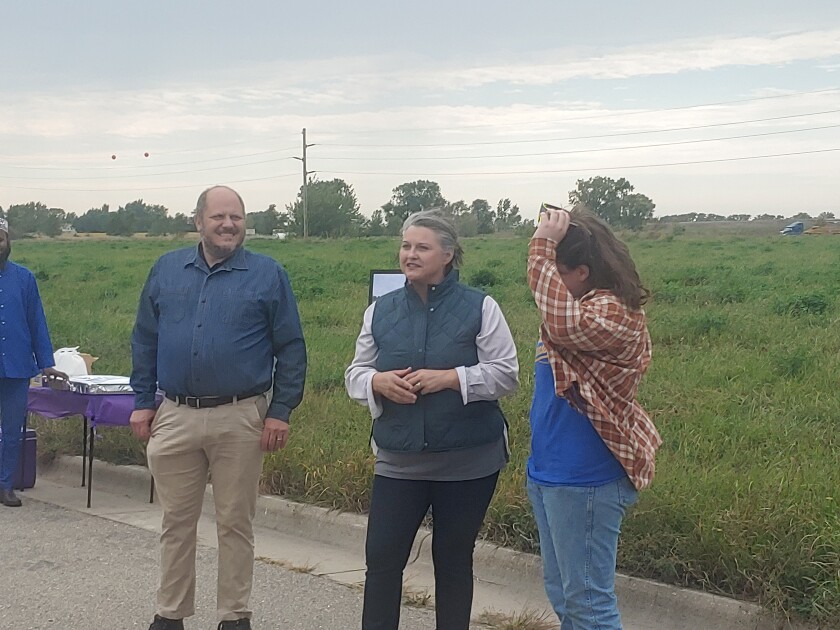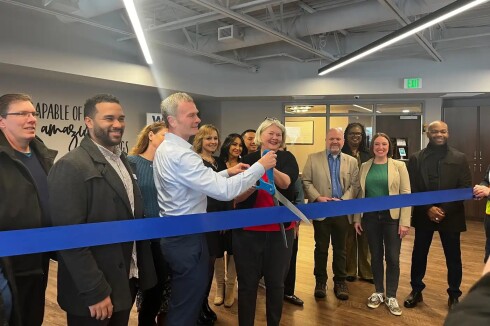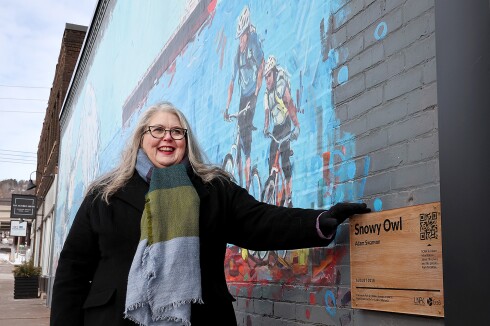WILLMAR — In downtown Willmar, Abdiweli Yusuf is a co-owner of Amin Grocery. The store sells international foods to help provide the community access to halal foods and ingredients.
Halal foods are those that are permissible by Islamic law. According to Yusuf, he goes through between 10 and 20 goats over the course of two weeks, depending on the season.
ADVERTISEMENT
“It is more important for customers to get fresh goat meat rather than frozen. They like the freshness. We haven’t been able to get that freshness,” Yusuf said.
In order to address the need for halal meats in Minnesota and across the country, Clean Chickens and Company has begun the construction of a new $3.5 million halal meat processing facility called Happy Halal. This facility will process halal goat and lamb meats in the Willmar Industrial Park.
“We are looking to do about 50-50 goat and sheep and it might end up being a little bit different as the goat production increases,” said Rebecca Wierschke, the president of Clean Chickens and Company.

According to a study by the Minnesota Department of Agriculture in 2020, across 5,500 Somali families of four or more people, there was an average meat consumption cost of between $300 and $500 per month. Of this meat, around 75% of the cost was spent on goat meat. Using $300 as the number for the study, it was found that a family of four was purchasing approximately 10 pounds of goat meat per person per month.
Despite the need for halal meats, the United States imports the majority of its halal meats from other countries, according to the Minnesota Department of Agriculture. The majority of this meat is imported from Australia with other meats being brought in from New Zealand.
Halal meat processing in the United States is limited, and according to Wierschke, the largest sheep slaughtering facility in the United States may shut down due to a measure on the Denver, Colorado, ballot which would ban slaughterhouses in the city.
The start of construction in Willmar was marked by a groundbreaking ceremony Tuesday attended by the Wierschke family and several local organizations, government agencies and individuals who have supported them.
ADVERTISEMENT
“I feel like, on all levels, this is only a margin of the support we have gotten. Not just from families and communities but also from government agencies which might be the city, the county or the federal government. On all levels they have seen that this is an issue that needs to be approached and fixed,” Wierschke said.
With much of the building being precast, construction is expected to go quickly, with the plant expected to open in spring of 2025. According to Wierschke, the company is expecting to expand to be able to process byproducts such as leather and sausage linings.
Clean Chickens is a mobile chicken processing company headquartered in Elk River. The family-run business was started by the Wierschke family after they found that access to chicken processing was limited in some parts of the state. At the time, the Wierschkes had to travel six hours' round trip in order to have their chickens processed.
The company purchased two lots at Trott Avenue and 32nd Street Southwest. Funds for the land purchase were provided in part by the Minnesota Farmers Union, and its president, Gary Wertish, was at the groundbreaking.
“It provides an opportunity to farmers to have animals processed here. This is the type of economic development that can have a real impact on the local community and can spread out to farmers too. It is providing a product and providing an opportunity to farms,” Wertish said.
According to Wertish, meat processing in Minnesota is dominated by beef, pork and poultry. By offering another processing facility, what animals can be raised in the area can be diversified.
“With goat raising, you don’t need a lot of land so you can do it on a smaller acreage. It provides a building opportunity that a young family could buy. If you go back, most farms had numerous types of livestock. Now we have gotten away from that and are more specialized. I think this is a good opportunity for farmers,” Wertish said.
ADVERTISEMENT
From farmer to grocery store, the excitement for Happy Halal processing is present in the Willmar area. According to Wierschke, the company is currently looking to utilize the Ridgewater College meat processing program to train new employees to ensure that the meats are processed correctly. According to a previous report by the West Central Tribune, Happy Halal is expecting to create 18 new jobs at the facility.






















